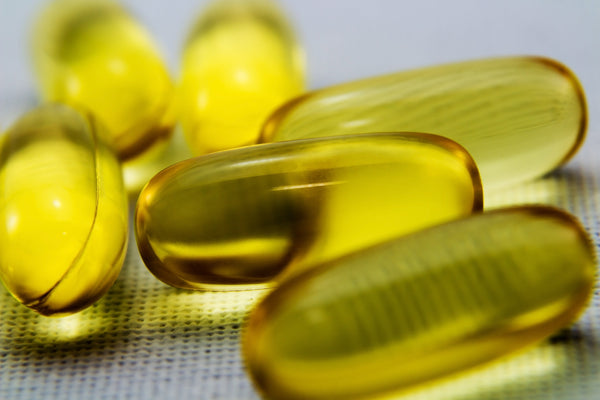Postpartum depression is a grave emotional condition affecting women after childbirth and may persist for a longer period if left unaddressed. The condition stems from hormonal imbalance with emotional exhaustion and physical stress contributing to it. Among the many options available, magnesium in particular helps in alleviating the symptoms of postpartum depression.
Understanding Postpartum Depression
Postpartum depression is a debilitating mental health condition that affects many women after childbirth. It is characterized by feelings of sadness, anxiety, and exhaustion that can interfere with a new mother's ability to care for herself and her baby. While postpartum depression is a complex condition with many contributing factors, one element that has been gaining attention is the role of magnesium in alleviating its symptoms.
The Role of Magnesium in the Body
Magnesium, an essential mineral, is indispensable for maintaining overall health and vitality. Engaging in over 300 enzymatic reactions in the body, including protein synthesis, and nerve function, magnesium also regulates vital minerals like calcium, and potassium, crucial for optimal muscle and nerve function.
The Impact of Magnesium on Mental Health
Magnesium has been shown to have a significant impact on mental health, including the prevention and treatment of depression. Studies have found that low levels of magnesium in the body are associated with an increased risk of developing depression and other mood disorders. This is because magnesium is involved in the production of neurotransmitters such as serotonin, which plays a crucial role in regulating mood and promoting happiness.
Magnesium Deficiency and Postpartum Depression
During pregnancy and childbirth, a woman's body experiences significant physiological changes, often leading to nutrient deficiencies, including magnesium. research indicates a correlation between low magnesium levels and an increased risk of postpartum depression, attributed to magnesium’s role in mood regulation and neurotransmitter production. Studies have linked that women with lower levels of magnesium are more prone to postpartum depression, while women with magnesium supplementation have shown promising results in alleviating depressive symptoms in magnesium-deficient individuals.
Magnesium-Rich Foods for Alleviating Postpartum Depression
Increasing your intake of magnesium-rich foods can be a natural way to boost your magnesium levels and potentially alleviate symptoms of postpartum depression. Some examples of magnesium-rich foods that help with postpartum depression include:
Spinach: Spinach can help alleviate the symptoms of depression by supporting neurotransmitter function and mood regulation.
Almonds: Aids in relieving postpartum depression symptoms by promoting serotonin production, which enhances mood.
Avocado: Avocados can help combat postpartum depression by regulating neurotransmitter activity and promoting calmness.
Pumpkin Seeds: High in magnesium, pumpkin seeds can assist in alleviating postpartum depression symptoms by supporting brain health and reducing anxiety and stress levels.
Dark Chocolate: With high magnesium content, dark chocolate can help alleviate postpartum depression by boosting serotonin levels, improving mood, and promoting relaxation.
Salmon: A magnesium-rich food, salmon can aid in reducing postpartum depression symptoms by supporting brain health, mood regulation, and stress reduction.
Bananas: Containing magnesium, bananas can promote serotonin production, which improves mood and reduces anxiety.
Magnesium Supplements for Postpartum Depression
In addition to incorporating magnesium-rich foods into your diet, you may also consider taking magnesium supplements to boost your levels. There are various forms of magnesium supplements available, including magnesium citrate, magnesium glycinate, and magnesium oxide. It is important to consult with your healthcare provider before starting any new supplements to ensure they are appropriate for you.
Other Natural Remedies for Postpartum Depression
While magnesium can be a powerful tool in alleviating postpartum depression, it is essential to approach treatment from a holistic perspective. Other natural remedies can complement the use of magnesium, including:
Regular Exercise
Exercise triggers the release of endorphins, which are chemicals that act as natural painkillers and mood elevators. Additionally, exercise promotes better circadian rhythm, and reduces anxiety, both of which contribute to improved mental health.
Adequate Sleep
Good quality sleep also supports cognitive function, memory enhancement, and emotional resilience, all of which help in managing depression symptoms.
Meditation or Yoga
Meditation or Yoga are effective in reducing postpartum depression because they activate the body’s relaxation response, lowering cortisol levels, and promoting a sense of calmness and tranquility.
These practices also encourage mindfulness, encouraging awareness of the present moment, and help women develop emotional regulation, thus providing coping strategies for managing depressive thoughts and feelings. It is important to find a combination of strategies that work best for you and to seek support from healthcare professionals if needed.
The Importance of Seeking Professional Help for Postpartum Depression
While magnesium and other natural remedies can be beneficial in alleviating postpartum depression, it is crucial to seek professional help if you are experiencing severe or persistent symptoms. Postpartum depression is a serious condition that requires a comprehensive treatment plan, which may include therapy, medication, and additional support. Remember, you are not alone, and reaching out for help is a sign of strength.
Conclusion
In conclusion, magnesium plays a powerful role in alleviating postpartum depression. Its impact on mental health, including its involvement in neurotransmitter production, makes it a crucial mineral for overall well-being. While incorporating magnesium-rich foods and supplements can be beneficial, it is important to approach treatment holistically and seek professional help if needed. Postpartum depression is a challenging condition, but with the right support and resources, you can navigate through it and emerge stronger on the other side.

























